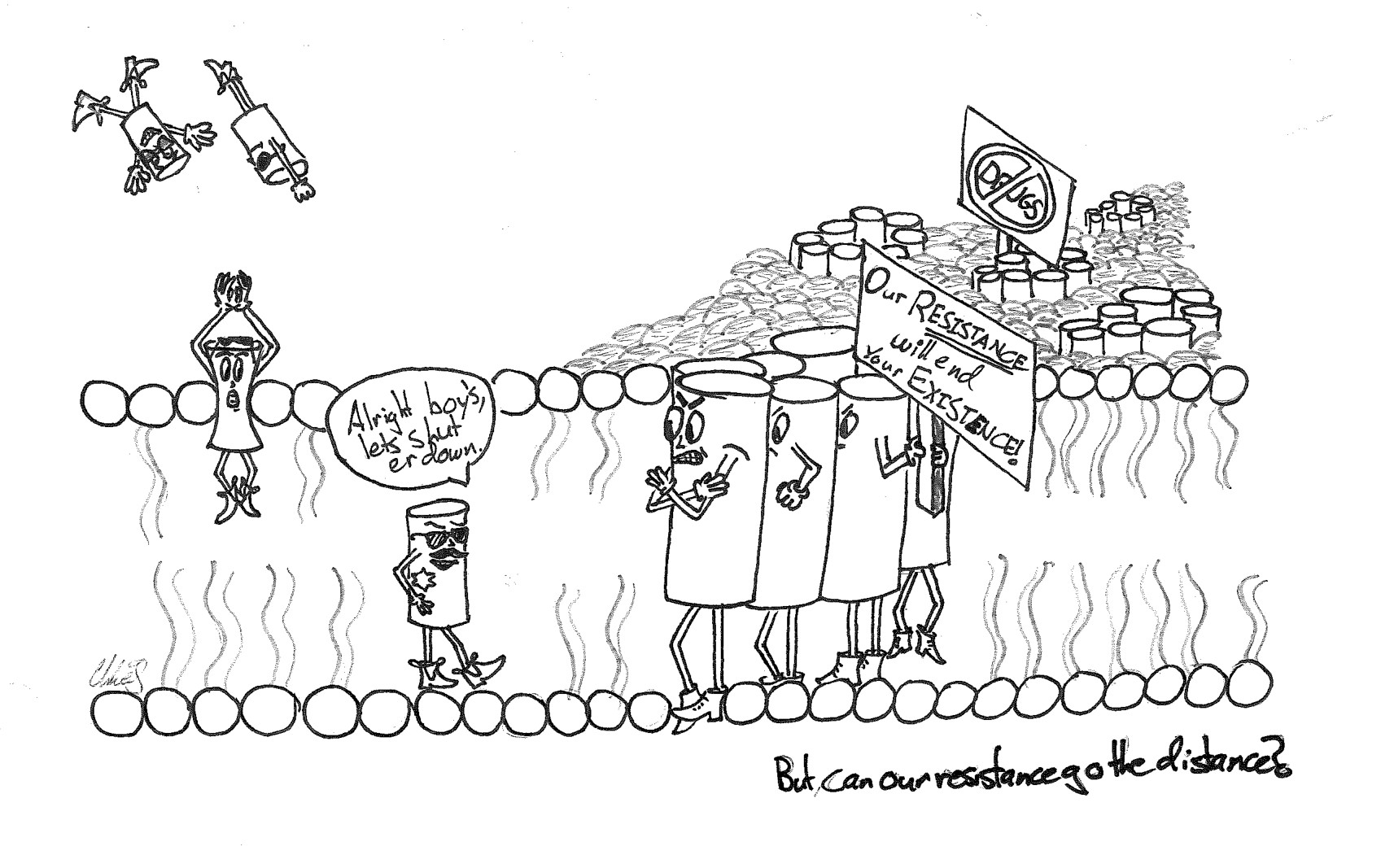Biochemistry Cartoon Series: The War on Antibiotic-Resistant Bacteria

Written and illustrated by Chloe Mitchell
Researcher: Chloe Mitchell
Group: Deber Lab
As an alternative to conventional antibiotics, the Deber Lab has designed peptide-based drugs to inhibit the defense mechanisms of antibiotic resistant bacteria. Antibiotic resistance is a global crisis that first appeared in the 1940s shortly after the introduction of penicillin and has continued as a steadily progressing evolutionary arms race ever since. And the bacteria are currently winning. With the advent of each new antibiotic, bacteria compensate with various mechanisms to avoid their lethal effects. Our lab studies one of these defense mechanisms – membrane embedded efflux pumps. These proteins that lie in the bacterial membrane have been putting up quite the fight, as they can recognize a range of toxic compounds and expel them from the bacterial cells. This renders our antibiotics useless and allows the bacteria to thrive.
One of these efflux pumps called the small multidrug resistance efflux protein requires dimerization to function. We have taken advantage of this by designing peptide inhibitors that mimic this binding interface and we have shown that these inhibitors “shut down” the pumps by disrupting dimerization. The ultimate goal with this drug is to kill even antibiotic resistant bacteria by disassembling this specific bacterial defense mechanism and allowing antibiotics to remain in the cells. We can only hope that the introduction of drugs to potentiate our current therapeutics will put us ahead in this arms race – at least for now.
In this new ongoing series on Transcripts, Biochem PhD student Chloe Mitchell will share her original cartoons that depict research projects in our department. Each illustration will be accompanied by a written description of the research as well. The series kicks off here with a cartoon about her own work!
